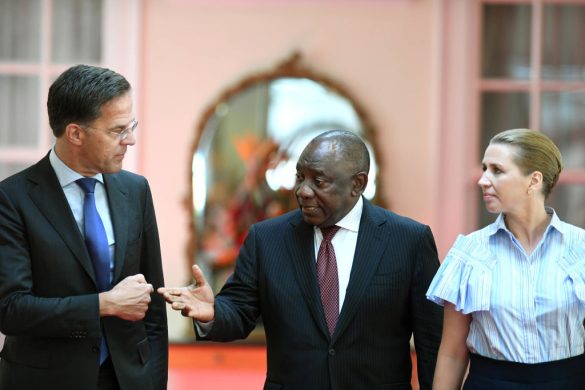Det sidste årtis positive vækst i landbrugssektoren bør underbygges ved bl.a. at støtte potentialet i de mindre familiebrug, understreger FAO overfor de afrikanske landbrugsministre ved den 28. regionale konference for Afrika, der åbnede mandag.
TUNIS, 24 March 2014, (FAO): Despite important economic progress and agricultural successes, Africa remains the world’s most food insecure continent, with relatively low levels of agricultural productivity, low rural incomes, and high rates of malnutrition, FAO said Monday.
As the Organization’s 28th Regional Conference for Africa gathers in Tunis, FAO is calling on African ministers of agriculture for action in priority areas to accelerate increased investment and broad-based transformation in support of smallholder farmers, including rural youth and women.
Landbrugs-successer på flere felter
Africa has recorded continuous economic growth since 1999, accompanied by improved governance and human development indicators.
Currently, seven out of the top ten fastest growing economies in the world are situated in Africa, and the International Monetary Fund estimates that economic growth in sub-Saharan Africa will be 6.1 percent in 2014.
Africa’s annual total GDP grew on average by 4.8 percent in 2000-2010, up from 2.1 percent in the previous decade, and the agricultural sector’s growth rates in the same time period were 3.2 percent and 3.0 percent respectively.
The continent has achieved a series of agricultural successes in major areas, including
* the intensification of staple (basis) food production,
* improved varieties of banana in eastern and central Africa,
* high-yielding varieties of maize in east and southern Africa, and
* productivity gains in cotton production in Burkina Faso and Mali and in tea and floriculture in East Africa.
Landbruget som indtægtskilde for kvinder og unge
“The question is how African leaders can build on this progress by providing stable agriculture and fiscal policies that encourage investment”, said Bukar Tijani, FAO Assistant Director-General and Regional Representative for Africa, adding:
“The leaders committed themselves to this aim 10 years ago in the Maputo Declaration, thereby strengthening governance and accountability mechanisms that contribute to more systemic implementation of policies and programmes”.
“These actions are critical to trigger a transformation in the capacity of countries to deliver sustained and broad-based agricultural growth and development.”
The Conference will advocate for providing the enabling environment to end hunger in the continent by 2025.
It will primarily focus on sustainably increasing the potential of agriculture, fisheries, livestock and forestry as a source of employment and income for African youth, women and men who engage in these sectors for food and nutrition security as well as agri-business ventures aimed at increasing family incomes.
Fødevareproduktion pr. indbygger forbedret
Trends in per capita food production have been generally positive over recent decades.
On average, agricultural production in Africa has increased slightly less than 1 percent per year, compared with about 2 percent in developing countries.
While Africa experienced high instability in food price levels, per capita food production was more stable over time and variability was relatively low compared to other regions, such as Asia or Latin America.
But despite the overall progress made on hunger and malnutrition in Africa over the past decades, absolute levels of hunger and undernourishment remain worrying in sub-Saharan Africa, FAO said.
Kilde: http://www.fao.org/news/story/en/item/218238/icode














